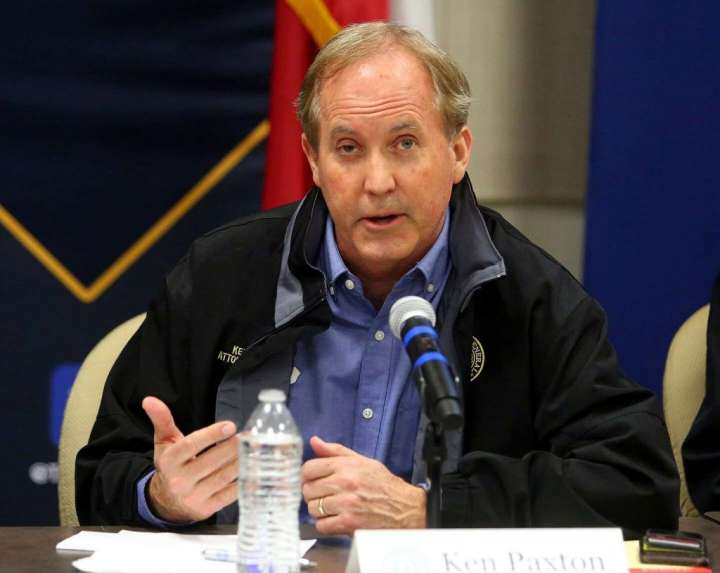Texas on Wednesday filed a petition calling on the Supreme Court to reject an emergency application seeking to block a state law regulating content moderation decisions at large social media companies.
Texas, 12 states fire back at tech industry in Supreme Court filings

Shortly after the Texas filing, Florida, along with 10 Republican attorneys general and the solicitor general of Iowa, filed an amicus brief supporting the law, highlighting how the policy is unifying parts of the country in a conservative playbook to address long-running claims of tech “censorship.” In the filing, the states argue that tech platforms are effectively the 21st century public square and have “enormous control over speech” due to their massive size.
“The states have a strong interest in seeing that it is not abused,” they wrote.
Paxton’s argument offers a first look at how the state will defend the law before the nation’s highest court, in a case that will have broad implications for the future of speech on the Internet. Tech companies turned to the Supreme Court after they expressed shock over a decision in the 5th Circuit last week that allowed the law to take effect, forcing them to scramble to develop a new defense.
Without a majority in Congress, conservatives who have accused tech companies of “censoring” them are turning to statehouses to shape the future of online content moderation. The 5th Circuit decision could embolden more states to move forward with laws governing online content moderation.
Florida last year passed a law that bars social media companies from blocking political candidates. That law was blocked in court following a legal challenge from the tech industry. The 11th Circuit heard the state’s appeal last month but has not ruled.
The industry groups filed the petition with Justice Samuel A. Alito Jr., who was nominated to the court by Republican President George W. Bush, and will decide whether to make a decision himself on the stay or refer the application to the full court.
If Alito refers the petition to the full court, Texas’s argument that the companies are “common carriers” could resonate with at least one justice: Clarence Thomas, who published an opinion last year that drew a similar analogy.
“A traditional telephone company laid physical wires to create a network connecting people,” Thomas wrote. “Digital platforms lay information infrastructure that can be controlled in much the same way.” None of the other conservatives on the court joined Thomas in that opinion.
The filing escalates a battle between Texas and industry groups representing some of the country’s most powerful social media firms. In their application, NetChoice and the Computer and Communications Industry Association argued that the law is an “unprecedented assault on the editorial discretion” of major tech companies, and that it would effectively force the companies to disseminate objectionable content, including Russian and terrorist propaganda, hate speech and risky content targeting children.
The Texas filing came after a number of First Amendment experts, industry backed groups and civil liberties advocates filed briefs in support of the industry application. The case has created strange bedfellows, as even frequent critics of social media companies including the NAACP and Anti-Defamation League joined industry groups in supporting NetChoice and the CCIA’s petition.
The Texas law “places platforms in an impossible position — they must either immediately suspend the vast majority of content moderation on a global basis, allowing their services to be overrun with spam, scams, fraud, disinformation, hate speech, and all manner of graphic and reprehensible content, or they must risk countless lawsuits and state enforcement actions for limiting distribution or the availability of content from or of interest to Texans,” the groups wrote.
Libertarian-leaning think tanks, including R Street Institute and Cato Institute, have also filed briefs in support of the industry.
Columbia Law School professor Philip Hamburger and the companies Giganews, Inc. and Golden Frog also filed a brief in opposition to the tech industry.






